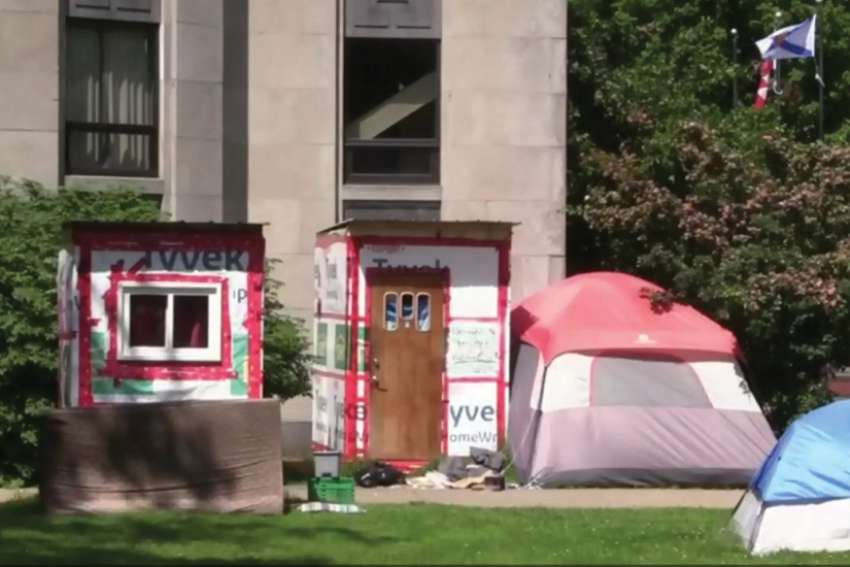With a growing affordable housing crisis and capacity restrictions at shelters due to COVID-19, an unprecedented need for shelters is expected this winter. The Archdiocese of Halifax-Yarmouth Emergency Shelter Project aims to provide a short-term alternative for individuals who struggle with securing and maintaining housing.
Archbishop Brian Dunn has encouraged all parishes to commit to the pastoral priority of homelessness.
“While it is a small step, it has the potential of raising the awareness of parishioners to the plight and reality of those who are homeless,” said Dunn in a statement. “The project has elements that make it workable, easy to explain and have a focused timeline and commitment on the part of the parish. It contributes to that which is necessary for living a genuinely human life, namely, food, clothing and housing. Ultimately it responds to the call of the Lord to look after those who are in need and in doing so creates the possibility of meeting the Lord Himself (Matthew 25).”
Fuelled by volunteers, the project is collecting donations to meet material costs. Shelters are to be built and transported by the Halifax Mutual Aid Society (HMAS), a group fighting homelessness by building small crisis shelters. Each shelter costs approximately $1,300.
A recent information session via Zoom drew 60 people interested in the project. Project leaders expect to have a better sense of the number of parishes that will participate in the coming weeks.
St. Ignatius Parish in Bedford, N.S., hosted a shelter pilot project last year.
“I saw an opportunity to make a real difference for those that are homeless,” said parish council secretary Ray Burke. “Assisting those in need is rooted in Catholic teachings. It speaks to the dignity of every person, basic human rights, our civic and spiritual responsibilities toward one another. I believe we must act on behalf of the poor as many have no voice.”
A diocesan team has been put in place to assist with co-ordination, communication and steps for installation of shelters. Liability issues are covered by the archdiocese’s insurance policy and a code of conduct will detail the conditions that must be met to ensure continued coverage. It’s proposed that shelters be placed on parishes’ private property, which means permission to meet existing bylaws and zoning regulations is not required.
Project leaders are recommending parishes commit to providing shelter from December to the end of May but is subject to parish discretion. The objective is to allow occupants to live onsite full time, rather than a series of short-term residents.
John Stevens, manager of pastoral life and new evangelization at the archdiocese, sees an opportunity for Catholics to put their faith in action
“This project is an important and tangible expression of faith and civic pride,” said Stevens. “In the Gospels Jesus asks each of us to care for the poor, and I was pleased to find a tangible way to do that with this project. As a lifelong resident of Halifax I was moved, like many, by the increasing severity of homelessness and affordable housing in the city.”
For each site, a parish liaison contact will be put in place to address issues that arise. However, in this project model, sites are to be self-monitored by occupants and is based on the idea that individuals be given the autonomy to communicate and build relationships with each other as a community to help meet immediate needs.
While concerns about safety, property and community complaints is a topic that has come up, Burke says the pilot project is an example that safe and effective execution is possible.
“While there will always be uncertainty and risk involved in any project, the potential positive outcome far outweighed this possibility,” said Burke. “An important factor was cultivating relationships to foster communication through mutual understanding and respect. In the end, there were no issues at the parish.”


